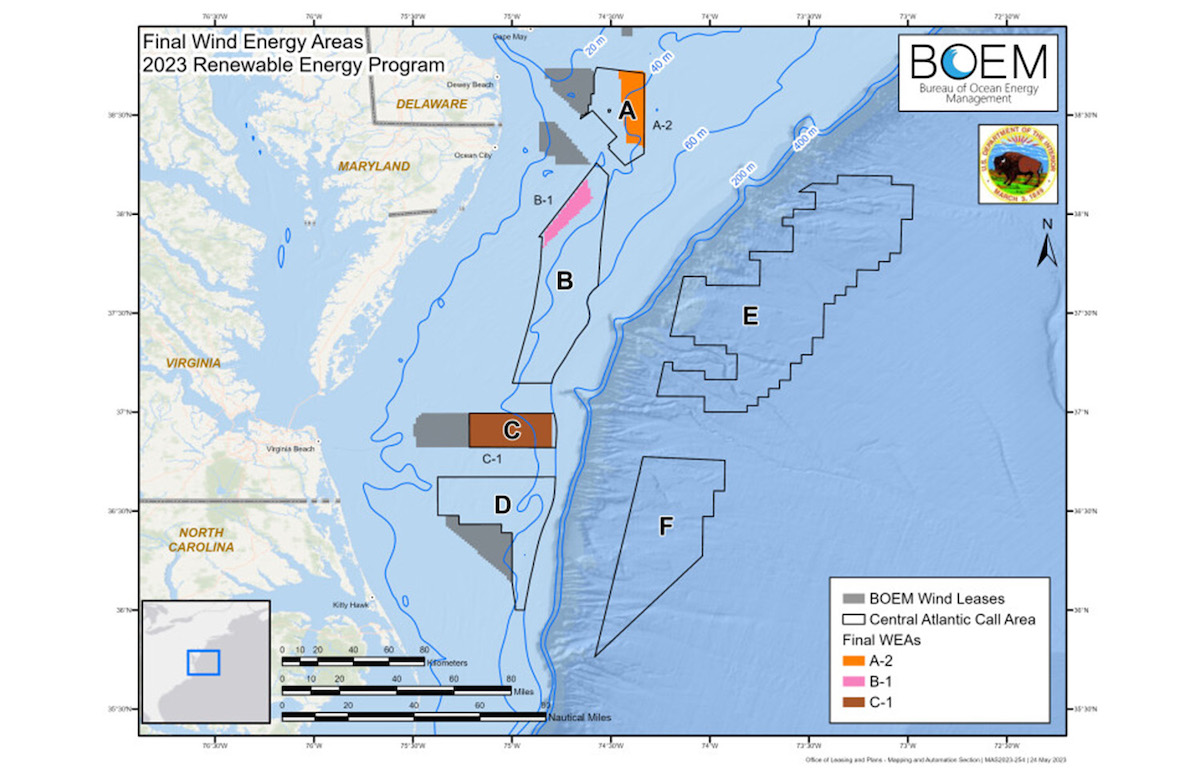
Keith Lusher 09.05.25

The Bureau of Ocean Energy Management announced this week it has rescinded all designated Wind Energy Areas on the U.S. Outer Continental Shelf, effectively terminating federal plans for offshore wind development across more than 3.5 million acres of ocean waters.
The sweeping decision eliminates 11 previously designated areas spanning multiple regions, including the Gulf of America, North Carolina coast, Gulf of Maine, Oregon, and California’s Morro Bay. The canceled zones include four areas off Texas and Louisiana, three off North Carolina, approximately 2 million acres in New England waters, and two floating wind areas totaling 195,000 acres off Oregon.
“By rescinding WEAs, BOEM is ending the federal practice of designating large areas of the OCS for speculative wind development,” the agency stated in its announcement.
The action follows Interior Secretary Doug Burgum’s Order 3437, which aims to end “preferential treatment for unreliable, foreign controlled energy sources” in federal decision-making. This builds on President Trump’s January 20 presidential memorandum that temporarily withdrew all Outer Continental Shelf areas from offshore wind leasing.
The offshore wind industry had projected $65 billion in investments by 2030, supporting an estimated 56,000 jobs with significant benefits for U.S. shipbuilding and maritime operations. These projections now face uncertainty as the Trump administration reverses the previous administration’s goal of deploying 30 gigawatts of offshore wind capacity by 2030.

Commercial fishing groups have welcomed the decision. The New England Fishermen’s Stewardship Association and other fishing organizations have long argued that offshore wind projects disrupt marine ecosystems and traditional fishing grounds. Fishermen have raised concerns about electromagnetic fields from underwater cables affecting lobster larvae and turbine-related water disturbances impacting fish populations.
The decision also addresses concerns about whale mortality along the East Coast, which some fishing advocates have linked to offshore wind surveying activities.
While existing lease rights remain unaffected, the order mandates comprehensive review of current wind energy leases for potential termination or amendment. The Interior Department promised “more meaningful consultation” with tribes, fishing communities, and coastal towns regarding any future offshore energy development.
The administration’s actions represent a significant policy reversal from federal offshore wind development that had been planned and studied since 2014.
Trending Products












